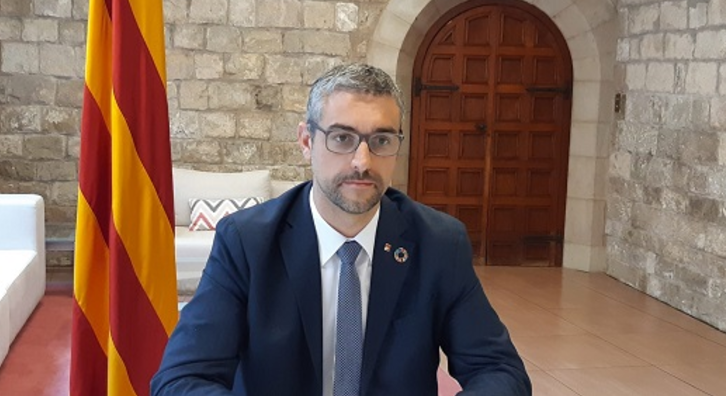
The Catalan Minister for Foreign Action, Bernat Solé, has given the opening address for Local and Regional Governments Day, which is part of the High-Level Political Forum (HLPF) for Sustainable Development, the main UN platform on sustainable development, which meets annually to review implementation of the 2030 Agenda. This year’s edition is being held virtually, from 7 to 16 July, and participants are discussing progress on the Sustainable Development Goals (SDGs) in the context of the COVID-19 pandemic and its impacts around the world.
Minister Solé said: “The COVID-19 outbreak isn’t just a health pandemic; it’s a clear warning to humanity: a crisis of human health, social inequalities, the current model of globalisation, and a global economic system that has no plans or means.”
“We’re more aware than ever that we live in a highly interconnected world. 2020 will be remembered for the dramatic effects of the COVID-19 pandemic. Devastating social consequences and the resulting economic crisis are hitting both the Global North and the Global South hard.” The minister said the crisis has shown that “local actions have global consequences”. According to Solé, “the climate emergency, long-lasting violent conflicts and skyrocketing inequality” are other global challenges that humanity needs to tackle.
Given the magnitude of the current crisis, the minister stressed the need for “a renewed global governance system, stronger multilateral cooperation, and people-centred agendas”. He said this was an “essential step” to achieve the SDGs.
The minister said the path to achieving the SDGs must be through “dialogue, negotiation and respect for human rights. In every corner of the world these democratic values must be upheld and defended, even in consolidated democracies there’s always room for improvement.”
Solé argued that local and regional governments have a key role to play in implementing the United Nations 2030 Agenda: “They are the governments closest to our communities; they are most aware of people’s needs and are directly accountable to citizens. The 2030 Agenda seeks to leave no one and no place behind, and we have an irreplaceable role to play in achieving that. The world is changing and so must we.”
“The SDGs were agreed by 193 states; however, over 65% of the targets rely directly on local and regional government actions: from water and sanitation to elementary education, energy consumption, accountable institutions and the primary sector. Where I come from this is a pillar of our economy, and we see the 2030 Agenda as a way to protect our future.” At the same time, Solé warned that “without further global devolution of competences and funding, local and regional governments cannot play their part in achieving the SDGs”.
In 2020, the year of the 75th anniversary of the United Nations, the minister stressed the importance of “standing together in favour of multilateralism as the only way to overcome the global challenges we face now and will face in the future. The decisions of today will build the world of the future. Let’s make sure it’s a sustainable, inclusive, and peaceful one,” he concluded.
Under the title “Accelerating transformation from the ground-up in a post-COVID era”, the aim of Local and Regional Governments Day is to provide a space where representatives of local and regional governments can discuss ways to accelerate implementation of the SDGs in a post-pandemic world. Participants explored how local and regional actors can contribute to global agendas and the response to the coronavirus crisis. Some 30 representatives of local and regional governments around world took part in the day-long event.
Catalan Vice-President Pere Aragonès participated in an HLPF side event entitled “2030 Agenda: from global emergencies to solutions at the regional level”, which focused on the key role regional governments can play in both SDG implementation and the recovery from the COVID-19 crisis.